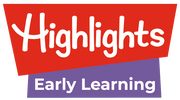15 Ways to Celebrate and Encourage Kindness in Your Preschool Classroom
Education is an integral part of teaching preschoolers about kindness and incorporating kind acts into the classroom. Resources abound in support of educational endeavors to tie kindness into curriculum.
Below are some examples of those resources and more than 15 fun ways to incorporate the message of kindness into preschool classrooms.

Commit to Kindness
Talk with children about what it means to be kind. As a class, commit to putting those ideas into action by taking the “Kindness Pledge” together. There are several versions of the pledge available, but simpler is better for preschoolers. Teacher Tip: this simple free version rhymes!
Are you looking for a fun kindness activity for your preschoolers? Download this cute and free activity from Kindness Connections!
After pledging allegiance to kindness, children can officially become Random Acts of Kindness Activists, also known as RAKtivists. Preschool RAKtivisits may be little, but they can make a big difference in the world. Smiling at a stranger, giving someone a compliment, and offering to help a person in need are all things even the youngest RAKtivists can achieve.
Go the extra mile by hosting a red-carpet event in the classroom that celebrates the new activists! Invite “paparazzi” (anyone with a camera!) to cover the event as children are presented RAKtivists certificates. Cap the whole thing off with light refreshments (crackers and juice!). Official in their new role and responsibilities, children will be excited to learn even more ways they can become kind citizens.
Learn About Kindness
Proudly committed to the cause, children are introduced to the Random Acts of Kindness Foundation's six cornerstones of kindness: respect, caring, inclusiveness, integrity, responsibility, and courage. Videos and coloring pages are the perfect additions to exploring each cornerstone. Once completed, the coloring pages can be displayed around the classroom to serve as visual reminders of the different ways children can be kind.
The Foundation also offers an extensive book list that teaches about the six cornerstones. For example, Mo Willems’s Can I Play Too? shows children what it means to be inclusive. Author Mercer Mayer’s I Just Forgot can be used to explain the importance of responsibility. Teacher tip: there are free read-alongs available for Willems’s and Mayer’s books as well as several others on the list.
Spread Kindness
With a better understanding of the various ways they can make a positive impact, it’s time for children to put theory into practice. Activities like RAK rock painting and Chalk the Walk are creative projects to get preschoolers thinking about things they can do to make people feel happy.
The Kind Heart Project is another way to sprinkle a little kindness in the world. After reading the poem together in class, and with help from an adult, children write simple messages like “you are loved” or “you are beautiful” on their hearts. Preschoolers will love gifting their hearts to someone special or leaving them in random places for unsuspecting lucky recipients.
Extend the Kind Heart Project by encouraging children to take what they’ve learned in class about kindness into their homes and neighborhoods. Have them participate in the Make Kindness the Norm challenge where they perform 10 random acts of kindness in 10 days and log it on their worksheet.
Ask families and caregivers to get on board by acknowledging their child’s kind acts. Whether at home or in school, when a child is caught performing a selfless act, showing bravery, or otherwise displaying one of the cornerstones of kindness, celebrate it! Kindness nominations and awards are the perfect positive reinforcement to affect repeated positive behaviors in children. In this case, the hope is that kindness begets more kindness.
Finally, because the overall goal is to make kindness the norm, these kindness calendars offer daily suggestions for making the world a better place, one random act of kindness at a time. Kids can take copies home and encourage their families and friends to participate as well.
When teachers complete these activities with their preschoolers, they are eligible to apply for Certified Kindness Classroom status. A classroom that cultivates a culture of kindness “is not just a place where students learn academic skills; it’s a space where compassion, respect, and empathy thrive.” It’s also certainly a classroom where children feel safe and loved.
Did you love this article? Get regular updates about preschool products, teaching tips, and ideas to cultivate joyful learning in your classroom. Don't miss a thing - sign up today!
About the Author:

Stephanie Jankowski is an educator and author who lives in Pittsburgh, Pennsylvania. When she's not teaching or writing, she's spending time with her children, Brady, Ella, and Lyla, and marveling at just how short the years really are.


